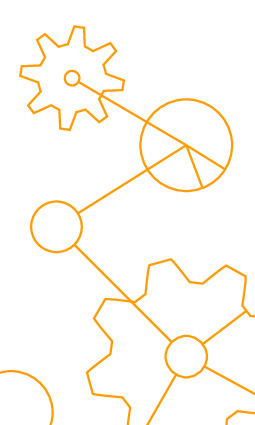|
|
|
| Module code: WIM22-WPM-W-400 |
|
4VF (4 hours per week) |
|
6 |
| Semester: 1 |
| Mandatory course: no |
Language of instruction:
German |
Assessment:
Written exam and written composition
[updated 21.06.2021]
|
MAMS-555 (P420-0440) Marketing Science, Master, ASPO 01.04.2016
, optional course, general subject
MAMSc-555 Marketing Science, Master, SO 01.04.2025
, optional course, general subject
MARPF-555 (P420-0440) Accounting and Finance, Master, ASPO 01.10.2017
, optional course, general subject
MARPF-555 (P420-0440) Accounting and Finance, Master, SO 01.04.2025
, optional course, general subject
MASCM-555 (P420-0440) Supply Chain Management, Master, ASPO 01.04.2017
, optional course, general subject
WIMAScWPF-W21 (P420-0440) Industrial Engineering, Master, ASPO 01.10.2014
, optional course, general subject
WIM22-WPM-W-400 Industrial Engineering, Master, ASPO 01.04.2022
, semester 1, optional course, general subject
|
60 class hours (= 45 clock hours) over a 15-week period.
The total student study time is 180 hours (equivalent to 6 ECTS credits).
There are therefore 135 hours available for class preparation and follow-up work and exam preparation.
|
Recommended prerequisites (modules):
None.
|
Recommended as prerequisite for:
|
Module coordinator:
Prof. Dr. Thomas Korne |
Lecturer: Prof. Dr. Thomas Korne
[updated 09.02.2022]
|
Learning outcomes:
After successfully completing this module, students will be able to:
- explain the driving forces behind the green transformation of the economy,
- assess products, services and business models with regard to the need for change and the opportunities offered by the green transformation,
- list the causes of major global, national, and regional environmental problems and assess their specific risks,
- derive basic environmental economic arguments and apply them to concrete environmental problems,
- classify current climate policy goals and challenges and transfer them to a corporate level of action,
- assess the sustainability requirements of financial markets and their stakeholders with regard to future investments and business models,
- apply basic tools for evaluating, analyzing and designing resource- and climate-friendly processes, services and products,
- identify and document the green transformation requirements for a concept, product, service, or business model,
- analyze and address a complex green transformation issue taken from the business world (Transformation Plan, Green Business Model Canvas),
- define a coherent division of labor within the framework of a project and to make an independent contribution to the overall success of the project,
- prepare the data from their work in a results-oriented manner, present it freely and explain it in detail when asked,
- document their findings in a structured manner in a short written report.
[updated 21.06.2021]
|
Module content:
- Green Business Model Canvas
- Sustainable innovation management
- Sustainability indicators (national, international, target matrix)
- Environmental problems and their causes / Planetary bounderies
- Goals of a green economy (global Sustainable Development Goals/SDGs, national sustainability indicators).
- Environmental economic approaches, concepts and instruments
- Climate crisis and climate protection as driving forces of a green economy: from the Paris Climate Agreement to the EU Green Deal and the carbon footprint for companies
Circular economy as a driver of the green economy,- basics of analysis methods (LCA, maturity models), examples of tools and implementation.
- The green economy and its funding: Criteria, concepts and institutes
- Technology and innovation management in the context of a green economy
- Opportunities and approaches for green products, services and business models in the context of a green transformation
- Independent creation of a green business model or a green transformation project in the form of project work using the knowledge and skills acquired in the lecture.
[updated 21.06.2021]
|
Teaching methods/Media:
Lecture, discussions, case studies, project, presentations
[updated 21.06.2021]
|
Recommended or required reading:
- Boston Consulting Group/Prognos (2018): Klimapfade für Deutschland, Studie im Auftrag des Bundesverbands der Deutschen Industrie (BDI), Januar
- Bundesregierung: Deutsche Nachhaltigkeitsstrategie, Aktualisierung 2018
- Feess, Eberhard/Seeliger, Andreas (2013): Umweltökonomie und Umweltpolitik, München: Vahlen
- Intergovernmental Panel on Climate Change/IPCC (2014): Summary for Policymakers. In: Climate Change 2014: Mitigation of Climate Change. Contribution of Working Group III to the Fifth Assessment Report of the Intergovernmental Panel on Climate Change
- Lacy, P., Long, J., Spindler, W. (2020): The circular economy handbook: realizing the circular advantage, London: Palgrave Macmillan
- McKinnon, A. et al (2015): Green Logistics: Improving the environmental sustainability of logistics, 3rd edition, London: Kogan Page
- Osterwalder A., Pigneuer, Y. (2010): Business model generation: a handbook for visionaries, game changers, and challengers, Hoboken, NJ: Wiley
- Rockström, Johan et. al. (2009): Planetary boundaries: exploring the safe operating space for humanity, in: Ecology and Society 14(2) (32), 58
- Schön, S. et al (2020): Transdisziplinäres Innovationsmanagement: Nachhaltigkeitsprojekte wirksam umsetzen, Bielefeld: wbv
- Statistisches Bundesamt/destatis (2018): Nachhaltige Entwicklung in Deutschland, Indikatorenbericht 2018, Wiesbaden
[updated 21.06.2021]
|


